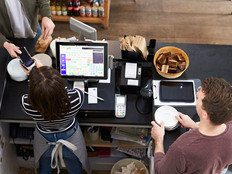Could E-Commerce Become the Norm for Car Dealerships?
The car industry is at a defining fork in the road. On one side, it’s embracing the disruptive mobile revolution and the increased maturity of mobile broadband technology to bring to life techno dreams like the “Connected Car.”
On the other side, hyper-disruptive Elon Musk and his electric-car company, Tesla Motors, are pushing the boundaries of the automotive industry from both a technological perspective and a business perspective in ways that not everyone likes. For example, Musk’s proposal to sell his cars directly to consumers threatens the traditional dealership system that’s been in place for decades.
While some dealers are gearing up for a fight with Tesla, others are thinking about how they can transition to a more consumer-friendly, e-commerce automotive buying model that would mitigate the threat that Tesla’s nouveau sales approach poses.
General Motors isn’t resting on its laurels as consumers’ buying habits shift. The company is actively lobbying dealerships to get onboard with its e-commerce platform, called Shop-Click-Drive, according to a report from The Wall Street Journal.
General Motors Co. plans to expand a new online shopping tool that allows customers to bypass showrooms when buying new cars.
The software, which keeps GM's 4,300 dealers central to the sale of its vehicles, will provide a high-profile test of whether the auto maker can better cater to online-savvy consumers without running afoul of state franchise laws that give dealers exclusive rights to sell most new cars.
By the end of this year, GM plans to extend a Web-based application, called Shop-Click-Drive, to its entire dealer network. The app would let new-car buyers use their computer screen to lock in the price of a new car, get an estimate of the trade-in value of their old car, apply for financing and even arrange a test drive or delivery of their new vehicle.
Retail in general is seeing a large shift toward online purchasing. Brick-and-mortar stores are nervous about “showrooming” — the practice of consumers walking into a store to test and hold a product, only to then purchase the device online at a different retailer — and the auto industry has been fortunate that it hasn’t had to deal with this phenomenon. But if showrooming can happen to major retailers like Target, then auto dealerships shouldn’t think they’re immune from the trend.
So far, about 100 dealers have signed up for the GM pilot, and 900 cars have been sold through the e-commerce program, according to the WSJ article. While some dealers will balk at the online automotive sales model, others embrace it as a natural extension of broader market trends that simply can’t be stopped.
“When this was first introduced, there was a lot of talk: ‘Well, GM is eliminating the dealerships. They want to be Tesla,’ ” said Lenny George, general manager at Berger Chevrolet in Grand Rapids, Mich., whose store was selected to test the program. “To me, this is just another way to close the customer [deal],” Mr. George said.
Today, GM and the dealers are targeting millennials, but an online-only experience makes sense for customers of any generation who already know what they want and how they want it. Besides, if we’re comfortable buying private islands online, why not throw cars into the mix as well?








